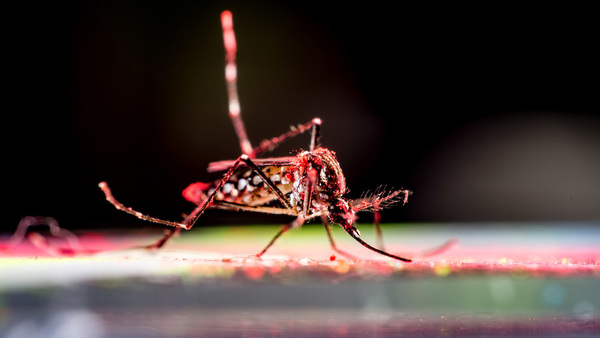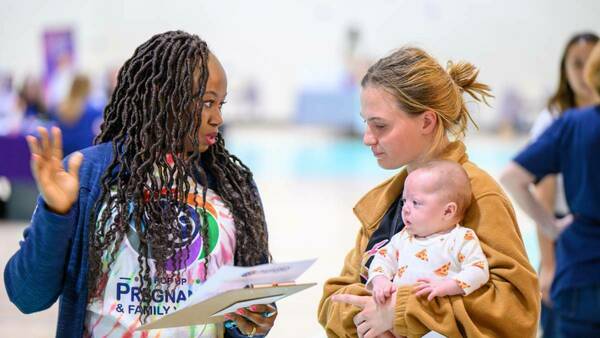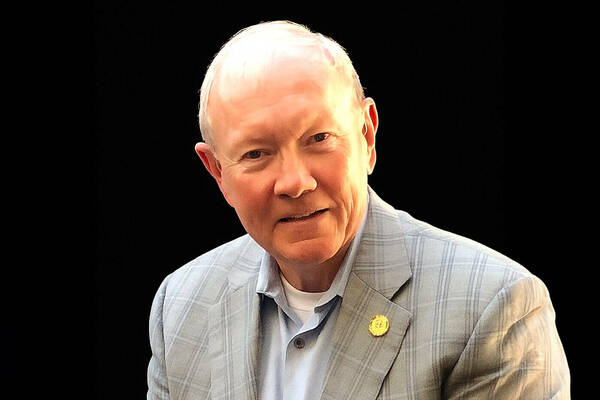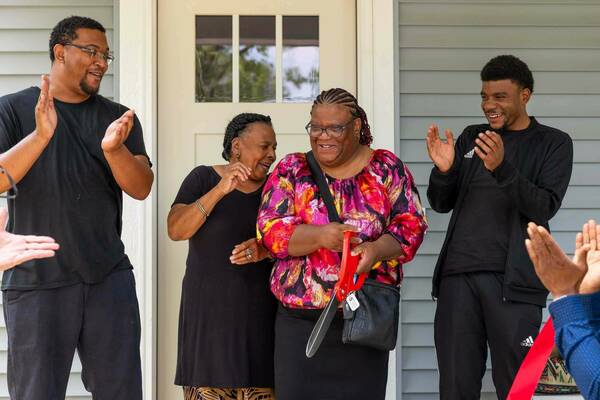Notre Dame develops first-ever public database of nationwide opioid transactions
The weight of the opioid crisis is heavy.
From 2006 to 2019, more than 100 metric tons of prescription opioid pain relievers — roughly the weight of a loaded Boeing 757-200 aircraft — were dispensed to individuals across Indiana. Widespread opioid use is leading to devastating socioeconomic and health challenges, but organizations and policymakers working to fix the problem have not had a clear picture of opioid manufacture and travel.
Now, a first-of-its-kind public database developed by researchers at the University of Notre Dame is filling in those details by enabling public access to more than 10 years of national controlled substance transaction information.
The database was created to store the Automation of Reports and Consolidated Orders System (ARCOS), a collection of more than 550 million detailed opioid transactions that were submitted to the Drug Enforcement Administration by manufacturers and distributors of controlled substances from 2006 to 2019.
“Understanding the root of the drug crisis is crucial for medical professionals, researchers and policymakers to mitigate its impact effectively,” said William Evans, the Keough-Hesburgh Professor of Economics and co-founder of the Wilson Sheehan Lab for Economic Opportunities (LEO). “This is critical as this crisis has been particularly devastating for certain groups such as those who have been left behind in the economy. With this data, we now have unbelievable detail about the origins of this crisis, and we hope that this information can be part of developing solutions.”
The data for ARCOS became available through Paul Farrell Jr., a 1994 Notre Dame alumnus and co-lead attorney in the National Prescription Opiate Litigation. Although Farrell and his team at Farrell & Fuller had made the secured data publicly available on their firm’s site, the data set was very difficult to work with given its size.
Wanting to make this data more accessible to researchers, policymakers and health professionals, Farrell and the case’s expert witness met with researchers from LEO and Notre Dame’s Lucy Family Institute for Data and Society. Together, they created a plan for transferring the data to the University and gained a deeper understanding of the data.
Researchers from across campus collaborated with Farrell to develop a website where the records could be stored for public use. Evans and Ethan Leiber, the Gilbert F. Schaefer Associate Professor and director of graduate studies in the Department of Economics, partnered with the Lucy Family Institute’s Applied Analytics and Emerging Technology Lab (AETL) to facilitate the design and development of the new platform, ARCOS.nd.edu.
The website offers customizable queries that trace the journey of individual prescription opioid purchases, from the state and county of manufacture to distribution within communities where they are dispensed.
Michael Kennel, lead software solutions architect with AETL, developed the user-friendly interface for ARCOS. He hopes that access to the data on ARCOS.nd.edu will provide insights into understanding the rise of opioid misuse in America.
“The opioid crisis has claimed millions of lives. To change that, researchers need an easier way to obtain and analyze the data behind the crisis,” Kennel said.
Nitesh Chawla, founding director of the Lucy Family Institute and the Frank M. Freimann Professor of Computer Science and Engineering, noted that the project’s goal to provide user-oriented access to substance abuse transaction data aligns with Notre Dame’s goal of pursuing research that provides discoveries to enhance human well-being. He described the opioid epidemic as “one of society’s wicked problems.”
“Addressing this challenge is central to the mission of the Lucy Family Institute and is aligned with the University’s strategic framework,” Chawla said. “The data itself is not going to save a life, but the results from our collective research using the data can provide impactful data innovations that promote the prosperity of humanity. We are grateful for this collaboration with LEO, as it truly is a story of domain-informed, data-driven research for societal impact.”
This effort also informs a larger data platform initiative that AETL is launching this year, which “aims to scale impact by reducing barriers to access data and leverage advanced machine-learning resources,” said Rick Johnson, managing director of AETL.
The ARCOS website will expand as more information is collected to include additional years. In anticipation of this, the AETL team is continuing to optimize the user experience by developing enhanced query tools and file export options. Kennel explained that “at AETL, the apps that we build may not necessarily have an immediate impact on someone’s life, but we’re enabling people to do things that will have that kind of lasting impact.”
To learn more about future AETL project collaborations, visit the Lucy Family Institute website.
Contact: Brandi Wampler, associate director of media relations, 574-631-2632, brandiwampler@nd.edu
Contact: Tracy DeStazio, associate director of media relations, 574-631-9958, tdestazi@nd.edu
Latest ND NewsWire
- Researchers deconstruct chikungunya outbreaks to improve prediction and vaccine developmentThe symptoms come on quickly — acute fever, followed by debilitating joint pain that can last for months. Though rarely fatal, the chikungunya virus, a mosquito-borne illness, can be particularly severe for high-risk individuals, including newborns and older adults. While the virus is common…
- Eck Institute investigator to strengthen postpartum care for Indiana mothersYenupini Joyce Adams, associate professor of the practice and maternal health lead for the Eck Institute for Global Health at the University of Notre Dame, is partnering with Beacon Health System to pilot a new, first-of-its-kind postpartum care model in the South Bend-Elkhart community.
- Gen. Martin Dempsey to speak at Notre Dame Forum event on ‘Hope, Global Stability and the Role of the United States’Gen. Martin Dempsey, the retired 18th chairman of the Joint Chiefs of Staff, will join University President Rev. Robert A. Dowd, C.S.C., for a fireside chat at 4 p.m. Friday (Oct. 10), as part of the 2025-26 Notre Dame Forum. The discussion, titled “Hope, Global Stability and the Role of the United States,” is part of the exploration of this year’s Notre Dame Forum theme, “Cultivating Hope.” It will take place in Rooms 215/216 of McKenna Hall and will also be livestreamed. The event is free and open to the public.
- University of Notre Dame joins the Global Coalition of Ukrainian StudiesThe University of Notre Dame has joined the Global Coalition of Ukrainian Studies after signing a memorandum of cooperation, formalized Sept. 24, at the Ukrainian Institute of America in New York City. Notre Dame joined four other American institutions that were also publicly welcomed to the coalition at this event: Arizona State University, Columbia University, Manor College and the Shevchenko Scientific Society.
- One year later, Inauguration Build a ‘dream come true’ for Habitat familiesOne year later, work on Inauguration Build 2024 is complete, offering shelter and so much more to five local families.
- Alumni Association and YoungND honor 2025 Domer DozenThe Notre Dame Alumni Association announced its 2025 Domer Dozen cohort, honoring 12 graduates ages 32 and younger for excellence in their contributions in learning, service, faith and work — the core pillars of the association’s mission.













